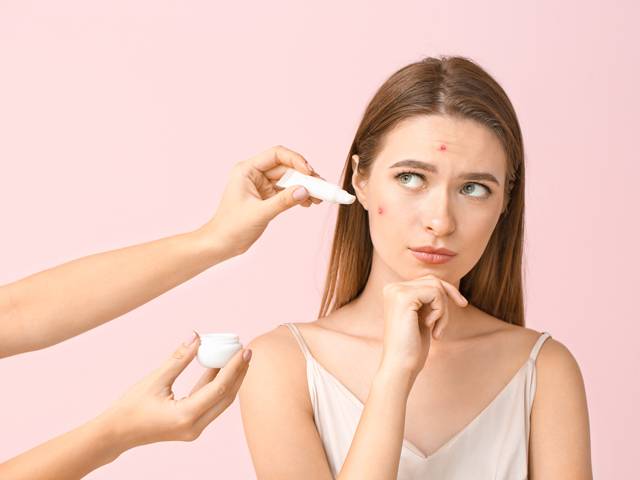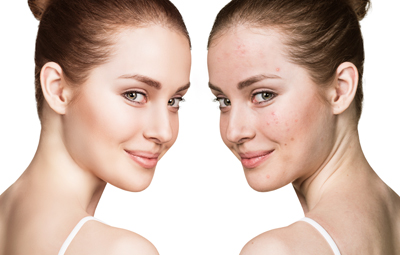10 Things You Should Do To Avoid Face Acne

Embarrassing pimples can hit everyone regardless of age. While it isn't a serious health threat, it's significant in a social and emotional sense. If you have blemishes, often, your self-confidence decreases, affecting both your social life and productivity at work.
What Causes Face Acne?
Acne or pimples are an inflammatory skin problem that occurs because of one or more of these three things: bacterial infection, hormonal fluctuations that trigger the body to secret excess oil, and plugging of hair follicles.
The severity of acne ranges from blackheads and whiteheads to cysts. Most people will experience acne, but why some have severe breakouts than others isn't entirely clear. Although, environmental influences and genetics clearly play a role.
One of the best ways to fight pimples is to use skin products that protect your face from pollution. So to address this common skin concern, numerous products have already been introduced in the market. Most of these are distributed by reliable manufacturers like Yora.
Learning how to avoid face acne before they break out is crucial to keeping it under control. To help you out, here are some things you should do to stop them:
1. Clean Your Face Daily
Whether or not you have pimples, you must wash your face twice a day. Washing removes extra oil, dead skin cells, and impurities from your skin's surface. Please take note, though, that washing your face more than twice daily isn't necessarily better because doing it may bring more harm than good.
Using warm water together with a mild facial cleanser is also advisable. Avoid using harsh soaps like a deodorant body soap as it will only hurt already inflamed skin, causing more irritation.
Also, don't scrub your skin harshly using a loofah, an exfoliating glove, or a washcloth. Instead, use your hands or a very soft cloth to wash it gently. Rinse your face thoroughly, and then make sure to dry it with a clean towel. If you're going to use a washcloth, use it only once.
2. Know And Understand Your Skin Type
Regardless of your skin type, you can get acne. An oily skin, though, is the most prone to pimples because of the sebaceous glands producing too much sebum.
Combination skin is another skin type that may cause pimples. What combination means here is that you have both oily areas and dry areas. The oily areas or the T-zone tend to be your chin, nose, and forehead.
You must understand your skin type, so you won't find it hard to choose skincare products that are right for you. For instance, you'd have to select non-comedogenic products if you have oily skin since they got formulated not to block spores.
3. Moisturize Your Skin
Many skin care products have ingredients that can dry the skin. So, if you already use one as part of your skincare regimen, don't forget to use a moisturizer to minimize dryness and skin peeling.
 4. Don't Frequently Use Makeup
4. Don't Frequently Use MakeupDon't wear blush, powder, or foundation during a breakout. If you really have to do it, make sure to wash the makeup off at the end of the day.
Also, choose cosmetics that are free from added dyes and chemicals. And, again, select those with a "noncomedogenic" label to make sure that the product wouldn't cause acne.
5. Keep Yourself Hydrated
Once you get dehydrated, the body signals the oil glands of your skin to release more oil. A dull appearance also results from dehydration. If you don't stay hydrated, inflammation and redness are also most likely to occur in your skin.
Drink at least eight glasses of water every day to keep yourself well-hydrated. Drink more if you're breastfeeding or pregnant, after exercise, and if you spend significant time in a hot and humid environment. You can also opt to drink fresh drinks from mango and other fruits.
6. Be Careful With What You Put On Your Hair
Avoid using gels, pomades, oils, and fragrances on your hair. Once they get on the face, they'll block the pores of your skin and irritate it. Use a gentle shampoo and conditioner instead.
Also, wash your hair often since oily hair can increase the oil on your face. Do it, especially if pimples have started to break out. Keep your long hair pulled away from your face.
7. Don't Touch Your Face
The hands encounter dirt and bacteria regularly every day. So, every time you touch the skin on your face, some of the pore-clogging impurities may transfer to your skin. That said, wash your hands regularly, and, as much as possible, don't touch your face.
8. Protect Yourself From The Sun's Ultraviolet Rays
The UV rays of the sun increase inflammation and redness. Too much exposure to the sun also causes dark coloration or post-inflammatory hyperpigmentation. It's also essential to note that some medications for acne will make the skin more sensitive to sunlight.
As much as possible, avoid overexposure from the sun, or at least limit your exposure between 10 a.m. and 4 p.m. Also, don't forget to wear protective clothing like a broad-brimmed hat, pants, and long-sleeved shirts.
Choose a sunscreen with six percent zinc oxide or higher and sun protector factor of thirty or higher. Use it at least twenty minutes before sun exposure. Always read the ingredients contained on the product label, so you'll know what you're going to put on your skin.
9. Avoid Eating Unhealthy Foods
Your mom was right when she told you not to eat junk foods because they can cause pimples. A review found out that eating a high glycemic diet causes acne.
High glycemic foods include soft drinks, baked goods with white flour, and chips. They are often less nutritious when compared to low glycemic foods. The same study also pointed out dairy products as pimple-causing food.
10. Exercise Daily
Your whole body benefits when you exercise regularly - your skin, of course, isn't an exception. However, please avoid wearing exercise clothing and equipment that harshly rub your skin to prevent irritation. After exercise, don't forget to take a shower.
Final Thoughts
Everyone gets acne now and then. Diet, genetics, stress, and hormones are the reasons why pimples break out. Some medications may also trigger them, so be careful when choosing one.
Pimples can be annoying, but at their worst, they can cause scarring that leads to severe anxiety and depression. That said, prevention steps like the ones discussed in this post should be taken.
MORE





